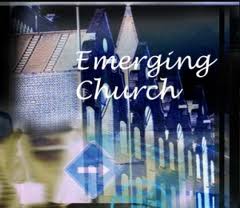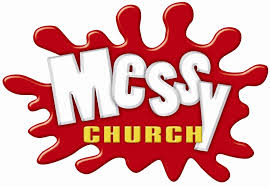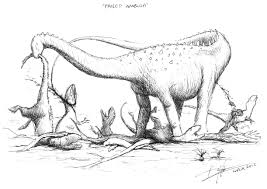 Have you ever heard the following comments: “If we could just be like the early church!” or “Wouldn’t it be great to have been part of the church in the book of Acts!” Often these comments come from a genuine desire to see the church act more consistently with who we say we are as followers of Jesus. The perception being that the early New Testament church was the pinnacle of things, and that progressively, except for a few blips in history, the church has been losing ground. There is a desire to return to the halcyon days of the church when the church was a force to be reckoned with.
Have you ever heard the following comments: “If we could just be like the early church!” or “Wouldn’t it be great to have been part of the church in the book of Acts!” Often these comments come from a genuine desire to see the church act more consistently with who we say we are as followers of Jesus. The perception being that the early New Testament church was the pinnacle of things, and that progressively, except for a few blips in history, the church has been losing ground. There is a desire to return to the halcyon days of the church when the church was a force to be reckoned with.
I believe that most people, church or non-churched, are on a quest to find the ‘real thing’, or seeking truth founded in love. This journey was never meant to be traveled alone, but with a community of fellow seekers of truth.”
Though wonderful things happened in and through the early church, there was also a lot of mess. When you read the story of the early church you see a whole lot of bickering, division, dysfunction, lying, power politics, and sex scandals mixed in with the miracles, rapid growth, radical giving to the poor, and martyrdom. The bottom line is that the church throughout history has been made up of messy, broken people. The confounding thing is that God has chosen to invite us into ‘His Grand Dream’ of restoring and reconciling all of creation to Himself.
the story of the early church you see a whole lot of bickering, division, dysfunction, lying, power politics, and sex scandals mixed in with the miracles, rapid growth, radical giving to the poor, and martyrdom. The bottom line is that the church throughout history has been made up of messy, broken people. The confounding thing is that God has chosen to invite us into ‘His Grand Dream’ of restoring and reconciling all of creation to Himself.
For clarification, I will be using the word ’emerging’ to describe the journey of the whole church , not just as a buzz word to describe a particular stream of the church called ’emergent.’ The church has always been in the process of emerging into her true identity. The church is progressively, in fits and starts, getting cleaned up to look and act more like Jesus, and reflect His upside Kingdom.
I love the whole church with all her dysfunction and foibles, though there are many times I shake my head at some of the things we do and say in the name of God! Like an irritating kid brother or sister, there are expressions of the church that drive me bonkers, and that I disagree with in theology, practice, and packaging. Yet they are still my family!”
The purpose of this blog is to give a framework and context for what I hear, see, and think are the ‘crux of the matter’ questions underlying some of the collisions going on in the church today. I will not be trying to steer or convince people to take one position over another. I readily admit that I am not a dispassionate observer, and that I do have a present position, bias or leaning on these questions. It would be hubristic of me to claim that I have conclusive answers to these questions and dilemmas. I come as a work in progress, a curious life long learner who has not arrived, and a practitioner trying to field test what I believe.
It is my aim to surface in a cursory fashion some of the seminal theological, structural, and praxis questions impacting how we ‘be and do church’. This blog is simply a primer to stimulate learning and discovering truth in the context of community. My hope is that through dialogue, loving debate, and heaps of humility we can avoid the extremes on either side of an issue and seek truth in love.
 The one philosophical, pedagogical, and hermeneutical template that I will use in framing the questions is what I refer to as the Divine tensions lens. Divine tensions are two opposing ideas such as free will and determinism that are part of the way God designed the world we live in. These ideas contain a piece of truth, yet when they stand alone they can they can distort the full picture of truth. They need to be held in some kind of dialectical tension as we reach for understanding. This Hegelian idea of thesis, anti-thesis, and synthesis is actually, in my opinion, a God initiated way of progressive learning.
The one philosophical, pedagogical, and hermeneutical template that I will use in framing the questions is what I refer to as the Divine tensions lens. Divine tensions are two opposing ideas such as free will and determinism that are part of the way God designed the world we live in. These ideas contain a piece of truth, yet when they stand alone they can they can distort the full picture of truth. They need to be held in some kind of dialectical tension as we reach for understanding. This Hegelian idea of thesis, anti-thesis, and synthesis is actually, in my opinion, a God initiated way of progressive learning.
In our quest for truth we need to embrace humility, mystery, and beauty as beacons of light pointing us
in the right direction.”
I believe that paradox and mystery are the portals or windows to go through on the eternal journey of exploring the vast oceans of beauty and truth summed up in Jesus!
 Truth is not simply the knowing and reciting of a correct proposition or doctrinal statement (John 5:39-40, James 2:19). Truth is found in knowing the person behind the proposition. John 1:14 states that Jesus came in flesh and blood to show us who God is, and what He is like. Jesus was full of grace and truth. Our thoughts and ideas of who God is must be filtered through an ongoing encounter with Jesus. Having said that, I am not discounting the necessary discipline of engaging our minds in rigorous thinking and theological learning, especially in a postmodern culture that tends to elevate experience over dogma and doctrine.
Truth is not simply the knowing and reciting of a correct proposition or doctrinal statement (John 5:39-40, James 2:19). Truth is found in knowing the person behind the proposition. John 1:14 states that Jesus came in flesh and blood to show us who God is, and what He is like. Jesus was full of grace and truth. Our thoughts and ideas of who God is must be filtered through an ongoing encounter with Jesus. Having said that, I am not discounting the necessary discipline of engaging our minds in rigorous thinking and theological learning, especially in a postmodern culture that tends to elevate experience over dogma and doctrine.
The pedagogy of mystery allows us to say, ‘I don’t know!’, and not feel insecure or fearful about not having all the answers! Curiosity and wonder propel discovery and worship.”
To claim that we fully know all truth would be as foolish as saying we have discovered all there is to know about Jesus. If we think we have figured someone out the relationship becomes stagnant and boring. What then will we be doing for eternity? Our discovery of truth is not limited to the present, but will carry on through eternity. It is progressive revelation. I think we have embarked on an eternal quest in search of the endless depths of beauty and truth found in the Trinity. We will spend eternity getting to know God. This means we have all simply scratched the surface.
 A key lesson from Church History 1.0 is the ongoing proclivity to pendulum swing from one end of a paradoxical truth to the other side. Like a teeter totter, Church History is full of reactionary responses to the dangers and ditches we fall into time and time again when one side or the other claims that their understanding of dogma is the right one. We then use our understanding of truth as baton to beat the other side up. My desire is that we would continue to dialogue and learn from each other. In my opinion, I am most apt to be on the edge of becoming heretical when I think I have figured out all the answers and stop learning. The other danger is when I study the Bible in isolation without having my thoughts processed and challenged in the context of community. When I fear or resist receiving input or challenge to my beliefs the blinders of hubris keep me from seeing the chasms I may be falling into.
A key lesson from Church History 1.0 is the ongoing proclivity to pendulum swing from one end of a paradoxical truth to the other side. Like a teeter totter, Church History is full of reactionary responses to the dangers and ditches we fall into time and time again when one side or the other claims that their understanding of dogma is the right one. We then use our understanding of truth as baton to beat the other side up. My desire is that we would continue to dialogue and learn from each other. In my opinion, I am most apt to be on the edge of becoming heretical when I think I have figured out all the answers and stop learning. The other danger is when I study the Bible in isolation without having my thoughts processed and challenged in the context of community. When I fear or resist receiving input or challenge to my beliefs the blinders of hubris keep me from seeing the chasms I may be falling into.
Without further ado, here are some questions to get the ball rolling. These questions are not exhaustive just a starting point for dialogue:
Theological Questions:
Our view of the nature of God and His Mission has a profound impact on how we ‘be and do’ church! Healthy community gives space and encourages seekers to ask the tough, thorny questions.”
- The Nature of God Questions: The Tension Between the ‘Open Theism’ and the ‘Reformed’ perspective on
 the Sovereignty of God: Does God have foreknowledge over every event and exercise meticulous control over everything that happens in this world? If so how do we reconcile the issues of evil and suffering? What does sovereignty really mean? How do we hold in tension a view of God where He is all powerful yet also all loving? How do we reconcile the nature of God in some of the O.T, stories where He seems to be a grumpy, war mongering and violent Deity in seeming contradiction to the Kingdom message of nonviolence and the ‘love trumps all’ nature of Jesus summed up in voluntary sacrificial love demonstrated in His death on the cross? Is God bi-polar in nature? How do we not neuter God and make Him to be what we want Him to be? Is there hierarchy in the Trinity, or is the Trinity a community of reciprocal love and mutual serving with no jealousy and jockeying for position?
the Sovereignty of God: Does God have foreknowledge over every event and exercise meticulous control over everything that happens in this world? If so how do we reconcile the issues of evil and suffering? What does sovereignty really mean? How do we hold in tension a view of God where He is all powerful yet also all loving? How do we reconcile the nature of God in some of the O.T, stories where He seems to be a grumpy, war mongering and violent Deity in seeming contradiction to the Kingdom message of nonviolence and the ‘love trumps all’ nature of Jesus summed up in voluntary sacrificial love demonstrated in His death on the cross? Is God bi-polar in nature? How do we not neuter God and make Him to be what we want Him to be? Is there hierarchy in the Trinity, or is the Trinity a community of reciprocal love and mutual serving with no jealousy and jockeying for position?
- The Salvation Questions: Is salvation a legal, forensic transaction, a relational transaction or both? What about the idea of personal salvation versus the salvation of all of creation? How does one enter into the Kingdom of Heaven? Who is ‘in’ and who is ‘out’? Which view of the atonement is right: the penal substitution theory of the atonement (The idea that God the Father had to kill His son Jesus on the cross to appease His wrath, and to pay the ransom or punishment in blood for our sin) versus the nonviolent view of the atonement where Jesus chooses to die on the cross and overcome the violence of Satan and humanity by going in the opposite spirit of love, forgiveness, and identification? Has God predestined who will be saved and who will not be saved? Is it not God’s nature that all would be saved? If so what does that mean? Are we bearers of Good News or Bad News?
- The 3 H’s Questions: Hermeneutics (How we interpret the Bible), Hell, and Homosexuality: How do we interpret the Bible properly recognizing that we all bring our personal and cultural biases, blinders, and bigotry to the table when we read the text? Is hell a literal place of eternal torment and punishment, or a constant reality based on the consequences of our choices when we reject God’s way of living out of love, beauty, peace and forgiveness? Is homosexuality a result of rebellion against God, or a form of sexual brokeness due to some gender confusion caused by sexual abuse? Is homosexuality an orientation that one is born with even if it does not seem like the norm? What does the Bible really say about homosexuality? What would we do if a gay couple in a committed relationship, and who loved Jesus joined our church community, and asked if they could lead a small group in the church?
- The Questions about the end, and after life: How do we avoid blind triumphalism that purports the notion that through all our human achievements things are getting better and better? Yet on the other hand how do we not settle for a fatalistic pessimism in which we the ‘chosen frozen’ are waiting in our holy huddle until Jesus beams out of this wicked world that is going to hell in a hand basket? Is this world going to end in fire, or will Jesus complete when He returns the renewal, change, and restoration of this world that He set in motion in His nonviolent victory over Satan, sin, and death when He died on the cross and rose again? Is heaven a literal place we go to, or the removal of all barriers keeping the Kingdom of Heaven coming in all its fullness here on earth.
Structural Questions:
Do we simply need to put a fresh coat of paint on the building, or add a few more bells and whistles to make church attractive? Is there a need for a major overhaul of how we structure church from top to bottom?”
- The tension between ‘Centralization and de-centralization’ of structures: What shapes of church structures will best serve life? Is big mega church with all its resources of people, money, and buildings better than simple church that is fluid and easy enough for anyone to do, yet is constrained by limited people and money. Is there room for both? How much of what we do in church culture is the by-product of the pagan practices adopted during the reign of Constantine and Christendom period?
 The tension between the Universal Church (organic, invisible, and scattered in nature) and the local church (organized, more visible, and gathered in nature): Is church a 24-7 expression lived out in our work places, and where we live, a Sunday morning service, or both? What are the ageless priorities or rhythms of the gathered church that we are to practice as rituals or sacraments with life? How do folks with normal jobs have time to run the programs of church gathered, and still have time to build quality relationships where we work or live as the church scattered? When does ‘organic church’ become so amorphous (loosey goosey) that there is no metric to measure whether we are being true to our raison d’etre or effective? When is organic church a cover for our unresolved hurt, disappointment, or rugged individualism whereby we are afraid, or not willing to be accountable to anyone, and don’t know how to play on a team? Though God does not reside in buildings, is there a place for sacred spaces?
The tension between the Universal Church (organic, invisible, and scattered in nature) and the local church (organized, more visible, and gathered in nature): Is church a 24-7 expression lived out in our work places, and where we live, a Sunday morning service, or both? What are the ageless priorities or rhythms of the gathered church that we are to practice as rituals or sacraments with life? How do folks with normal jobs have time to run the programs of church gathered, and still have time to build quality relationships where we work or live as the church scattered? When does ‘organic church’ become so amorphous (loosey goosey) that there is no metric to measure whether we are being true to our raison d’etre or effective? When is organic church a cover for our unresolved hurt, disappointment, or rugged individualism whereby we are afraid, or not willing to be accountable to anyone, and don’t know how to play on a team? Though God does not reside in buildings, is there a place for sacred spaces?
- The tension between hierarchical and flattened out forms of leadership: How do we steward power and authority in a healthy and safe way? Is any form of top down leadership abusive? Are consensus forms of leadership a reaction to, or distrust of any type of leadership resulting in paralysis, and everyone doing their own thing so as not to offend anyone? How do we avoid dictatorships on the one hand and anarchy on the other hand? What are systems of leadership that allow catalytic, visionary leaders to do what they are good at while minimizing whiplash to the rest of the community? How do the pastoral and managerial type leaders relate to the catalytic apostolic/prophetic type leaders without alienating or fighting each other?
Praxis Questions:
How do we be communities of Jesus followers that live the upside down Kingdom in this world? What does church look like in real life?”
- The tension between ‘attractional and incarnational’ approaches to mission: Is it more effective to
 invite the non-churched to ‘come’ to our events and programs, or to ‘go’ be Jesus with skin on to the people we work, play, and live by? What is it that will attract people to Jesus and church? How do we live out justice, reconciliation, stewarding the environment, hospitality, and serving the poor in our everyday lives?
invite the non-churched to ‘come’ to our events and programs, or to ‘go’ be Jesus with skin on to the people we work, play, and live by? What is it that will attract people to Jesus and church? How do we live out justice, reconciliation, stewarding the environment, hospitality, and serving the poor in our everyday lives?
- The tension between the paid professional pastor model and the bi-vocational leaders model: How do we create a culture in church that is not consumeristic, and where the paid pastor is not expected to dole out all the religious goods and services that people feel they deserve, and have paid for with a tax? Would the church survive if the paid or volunteer leaders were taken out of the equation? For those working in full-time jobs outside of the church, how do they carve out time to give the attention necessary to organize even a few church meetings without their job or family suffering? How do bi-vocational folks make a living and still have time to give for mentoring leaders, serving in the community, forming relationships with folks inside and outside the gathered church, and organizing gatherings even of the small, simple variety? How do we avoid burnout, divorces, the growing exodus of pastors out of full-time vocational ministry, and the breakdown of family life in leaders who are juggling all these roles? How is the Greek dualism of the secular sacred divide still impacting how we view ministry and the church?
- The tension between the classroom ‘talking head’ approach and the ‘one on one’ mentoring approach to training and discipling: Do people really want to grow? How do people grow? Are people willing to face their real growth issues by going deeper in relationships of trust in a community, or do most people simply want church light where they can come and hide? Are most church leaders so busy running the church programs to keep the people coming that we don’t have enough time to ‘one on one’ mentor and apprentice people? Do the 52 life changing sermons and classes we teach or preach bring about the kind of transformation we had been hoping for? What is the purpose and place for preaching and teaching n the spectrum of how we approach spiritual formation and training? How do we marry theological training with doing the stuff in the field where one faces the real questions?
I hope these questions will spur you on to find a few friends that you can regularly meet with to become a learning community that through love seeks the truth! I have a class for working folk that explores the development of Christian thought through history. It’s called Exploring Ancient Future Pathways: A Journey Through Church History and Theology with a Community of Friends. If you are interested in this class that will run one Saturday a morning for a month here in Calgary e-mail me at sojourner40@gmail.com and I’ll get you more info. If I have enough students, I’ll start this March.
By Tim Schultz





